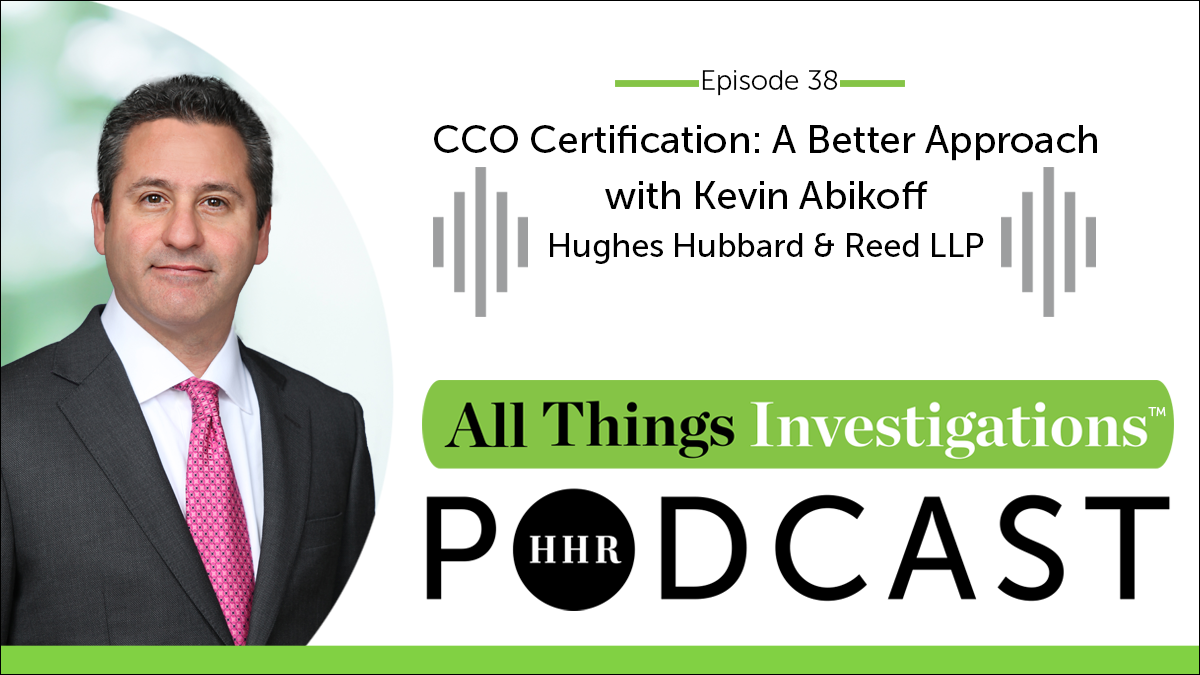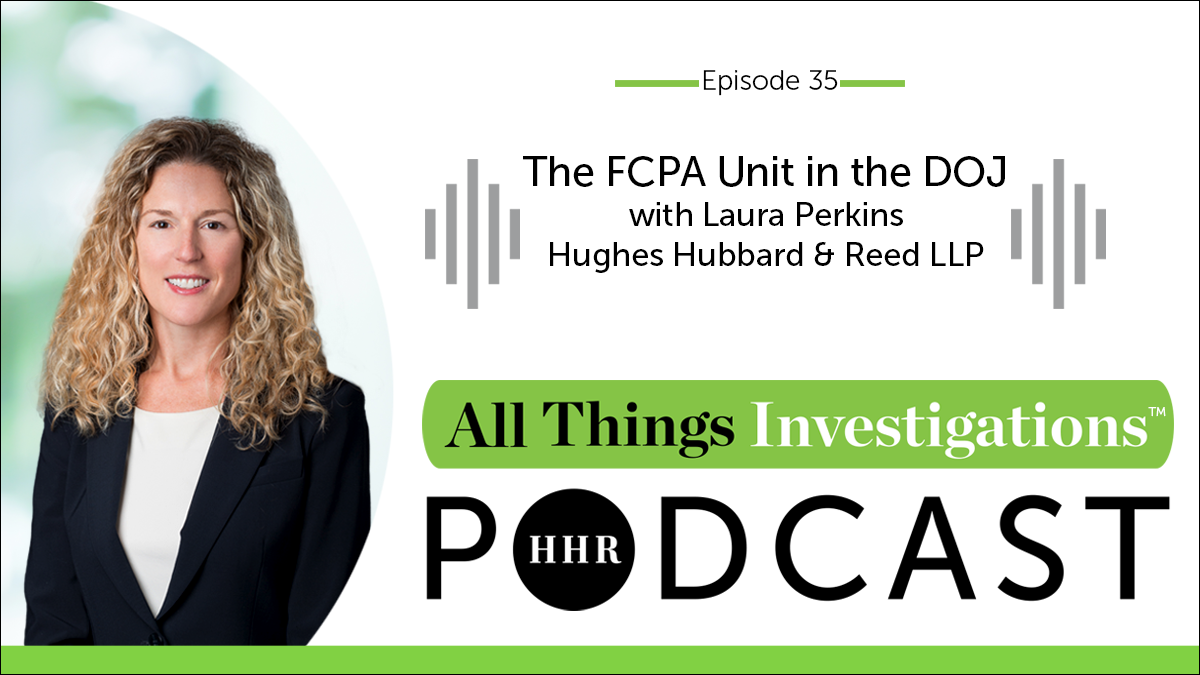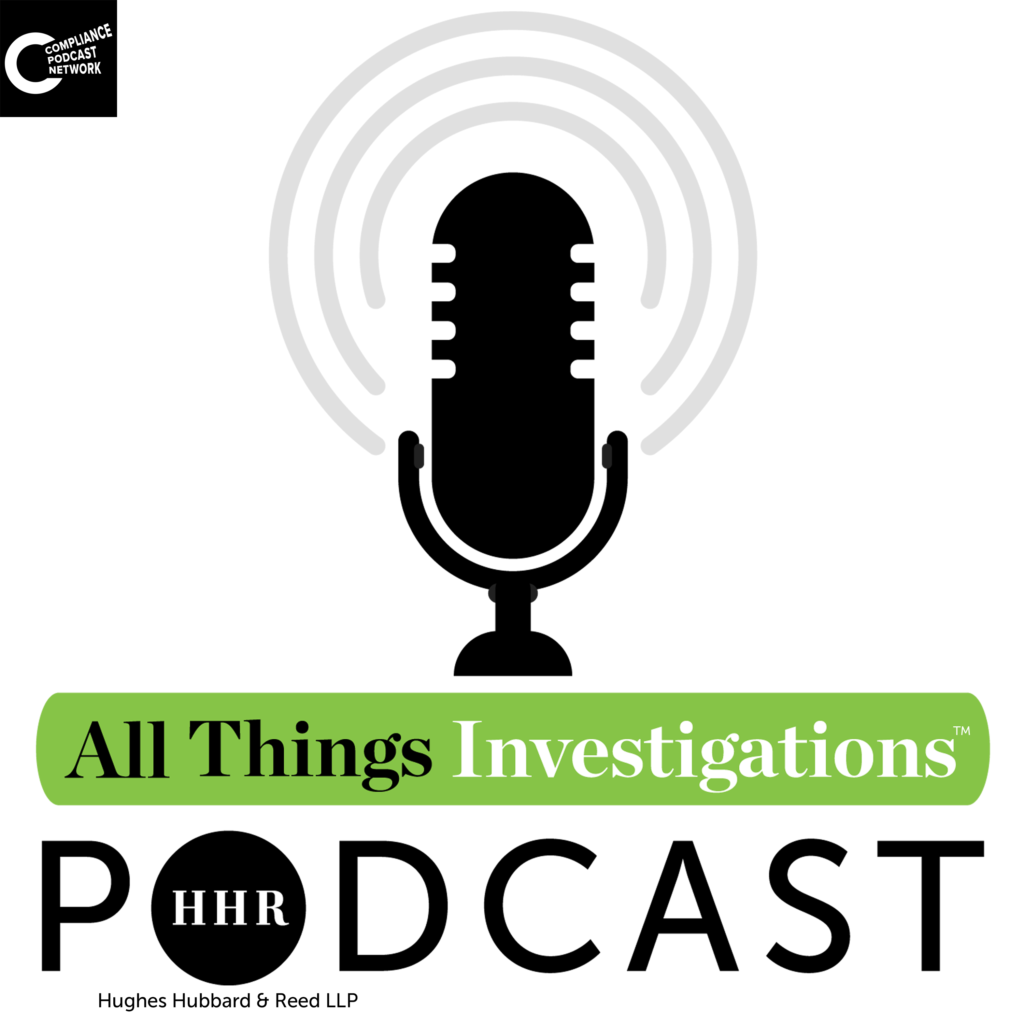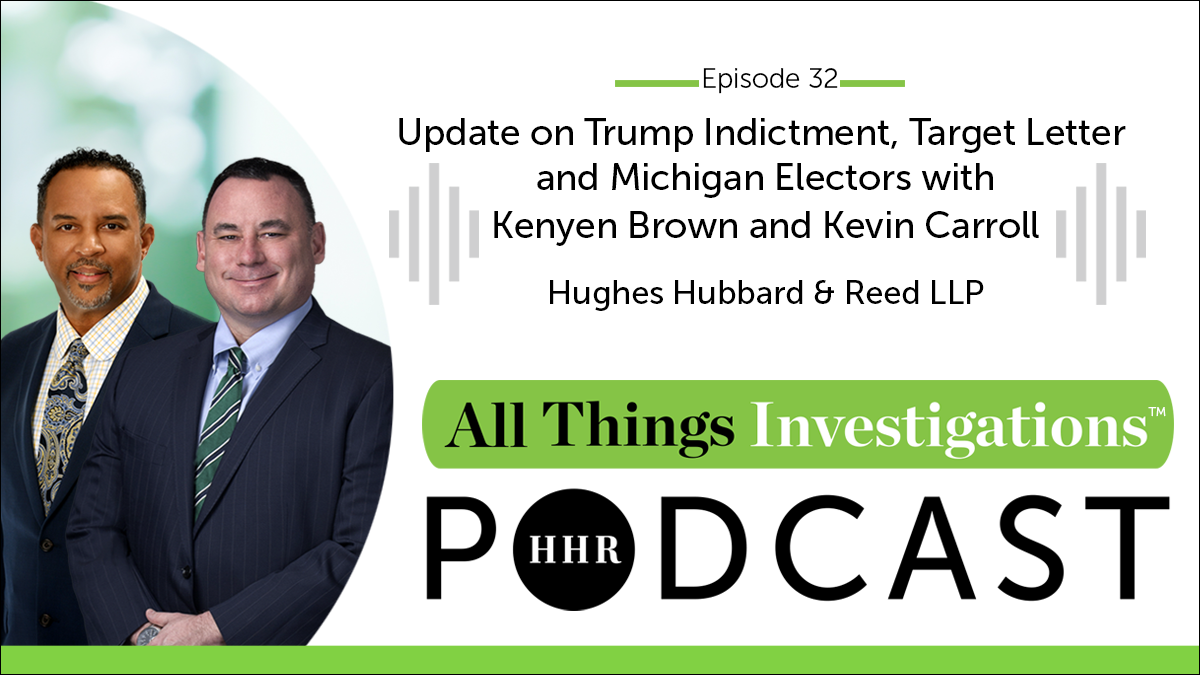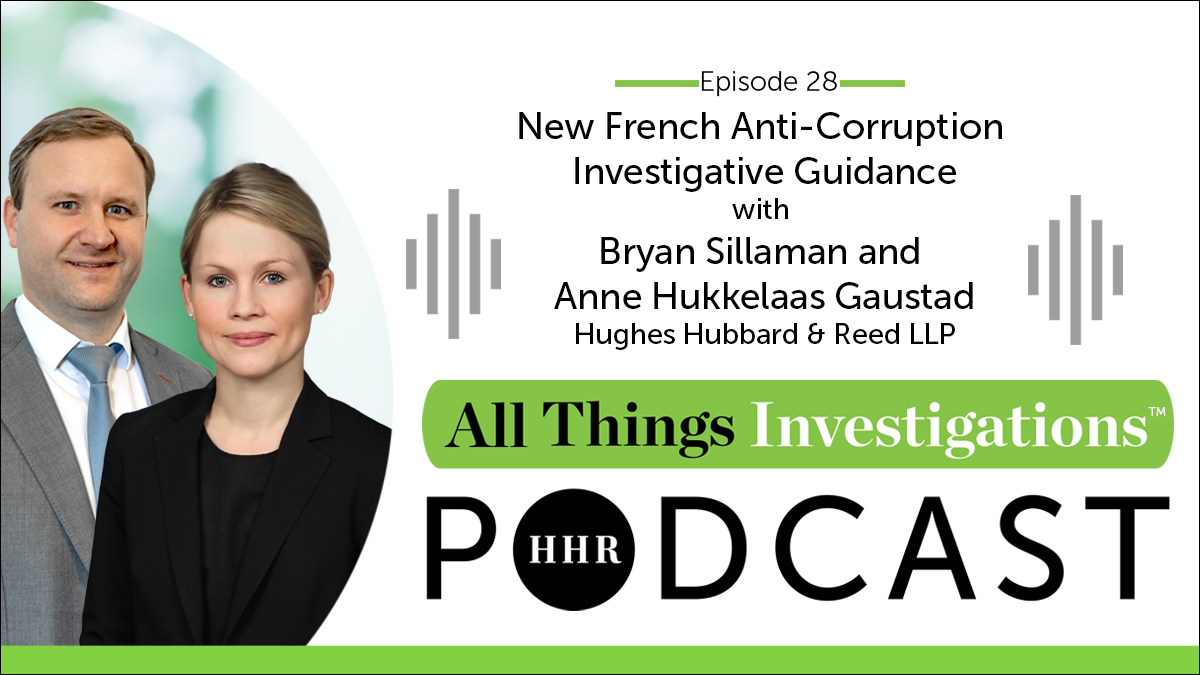In this episode of All Things Investigation, Tom Fox and guest Kevin Abikoff discuss the Department of Justice’s introduction of a CCO certification in the wake of FCPA violations. Kevin offers his unique perspective on this issue; their conversation also explores broader issues of corporate governance and the role of the Board of Directors.
Kevin Abikoff is a Partner and Deputy Chair at Hughes Hubbard & Reed. He is a recognized authority in corporate governance and compliance.
You’ll hear Tom and Kevin discuss:
- Kevin questions the necessity of the CCO certification, suggesting it addresses a problem that doesn’t exist, given the absence of complaints from the Department of Justice about dishonesty during monitorships.
- A more practical approach, Kevin posits, is a certification 12 to 24 months after a monitorship ends to empower CCOs during periods of vulnerability truly.
- Measuring compliance effectiveness is subjective and may be void of vagueness in a legal context.
- In the broader realm of corporate governance, the board has a pivotal role in overseeing compliance. Parallels to the Caremark duty and Delaware law are drawn.
- Kevin raises concerns about the burden on CCOs to assess program effectiveness retrospectively, especially considering the dynamic nature of compliance programs over time.
- Boards should take responsibility for compliance certifications and should sign off on these certifications, mirroring similar practices in financial reporting.
- Innovation within compliance may be stymied if CCOs fear that enhancing a program might be used against them in the future, Kevin points out.
KEY QUOTES:
“I’ve just never heard, especially from the context of Chief Compliance Officer, that the DOJ feels like they’re being lied to. If that’s not the problem they’re trying to solve, I think the solution they have paved is, again, a solution in search of a problem that doesn’t exist…” – Kevin Abikoff
“If you’re going to have a certification and you want to empower the chief compliance officer, have the certification twelve months, 24 months after the conclusion of the monitorship and have the CCO certify that they continue to believe that the policies, procedures, things that have been put in place, continue to be in place.” – Kevin Abikoff
“Now what you fail to investigate can kill you.” – Kevin Abikoff
Resources:
Hughes Hubbard & Reed website
Kevin Abikoff on LinkedIn


